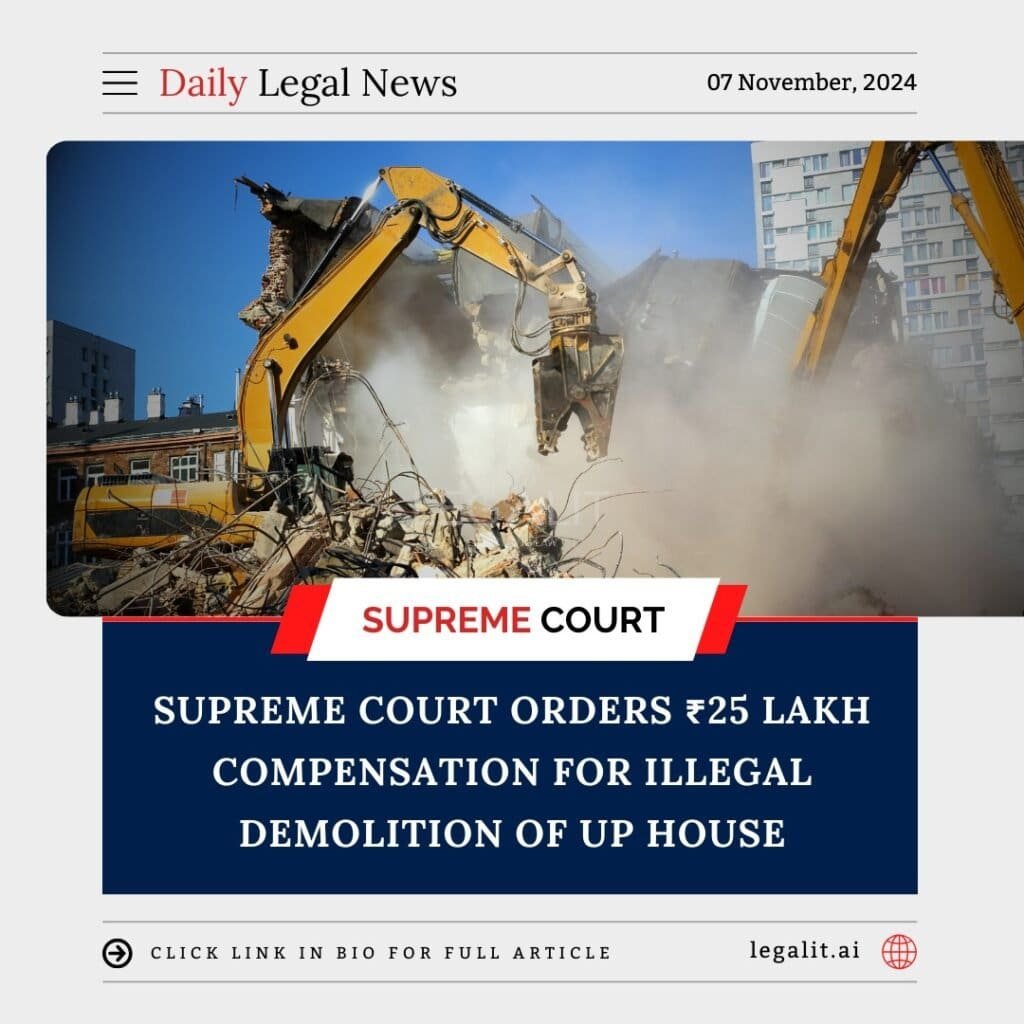
The Supreme Court recently reprimanded the Uttar Pradesh government for the unauthorized demolition of a private residence, deeming the act illegal and a violation of constitutional rights. The court ordered the state to pay ₹25 lakh as compensation to the affected homeowner, marking a strong stance against unlawful actions by authorities.
Background:
The case arose after the Uttar Pradesh administration demolished a house under controversial circumstances, sparking claims that the act was arbitrary and exceeded legal authority. The affected party contended that the demolition was carried out without due process and violated their fundamental right to property.
Court’s Rationale:
In its judgment, the Supreme Court emphasized the importance of due process and the rule of law, asserting that state authorities cannot bypass legal procedures. The court highlighted that any action infringing on individual rights requires adherence to strict protocols to prevent misuse of power. It noted that the illegal demolition constituted a severe violation of the affected family’s rights and called for accountability.
Existing Measures:
India’s constitution guarantees the right to property and mandates that any government action affecting personal property must follow due process. This judgment underscores the judiciary’s role in holding state entities accountable, especially in cases of perceived misuse of administrative powers.
Conclusion:
The Supreme Court’s decision reaffirms the sanctity of individual rights against state encroachments, setting a precedent that discourages arbitrary actions by authorities. The ₹25 lakh compensation aims to rectify the financial and emotional damage caused, while also serving as a cautionary reminder to state entities about the necessity of due process.